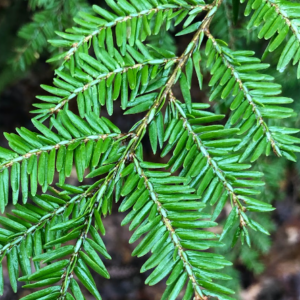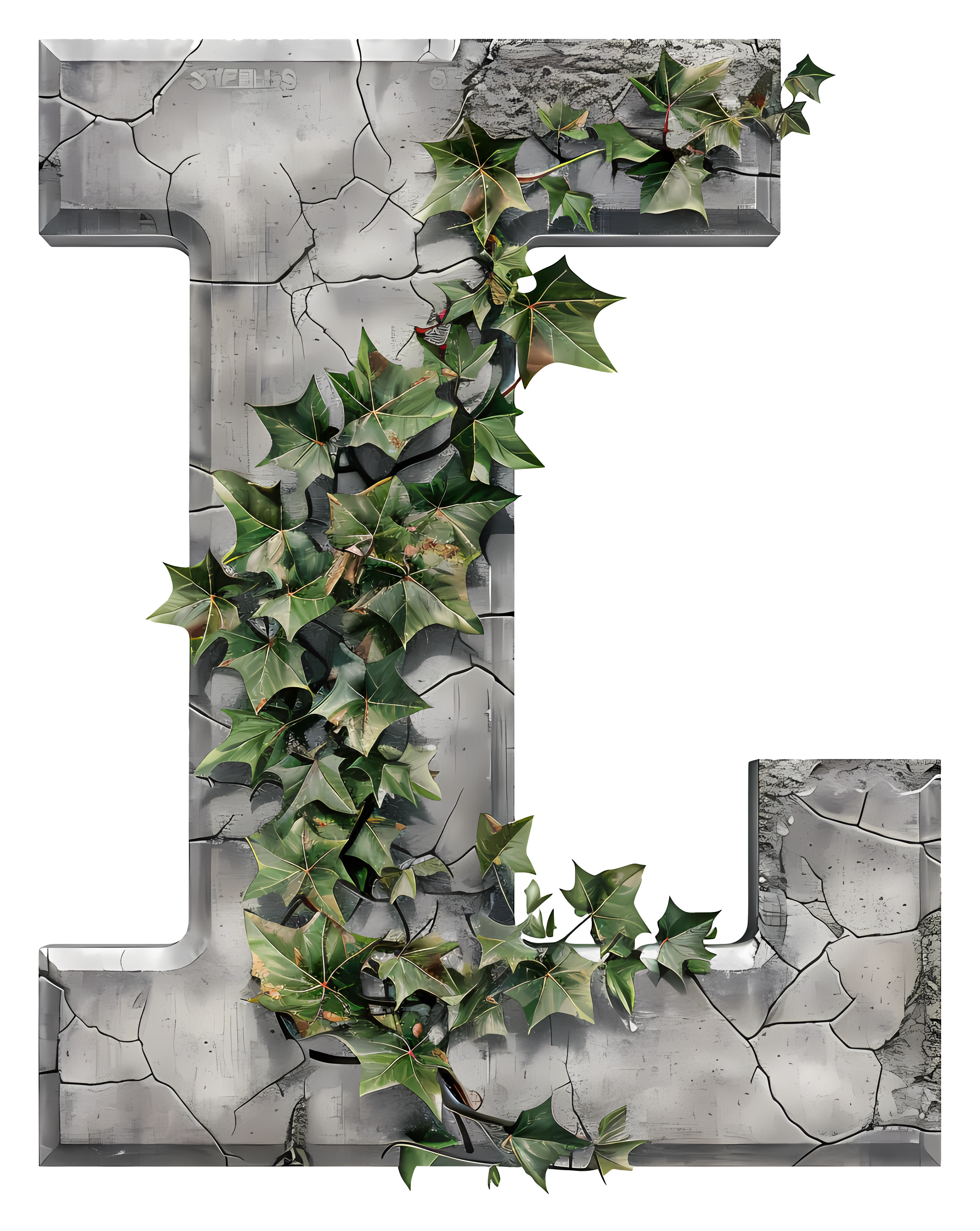I’m all about prepping canned and dehydrated food in advance of any emergency. I’m more interested in learning to garden than in having 20 years of supplies on hand. My goal is to have enough food (“food” being defined as the proper ratio of fats, carbohydrates, and proteins to keep a person not just alive, but thriving) in my pantry that I can last for 18 months. That’s the longest time I would be without a garden harvest. These are good plans, but I also like to know what I can get from the world around me.

I live in New Hampshire, and there are lots of things to eat that can be foraged easily. Starting with the easiest, there are blackberries, raspberries, and blueberries pretty much all over the state. They’re largely free for the taking, and there aren’t any “look alike” poisonous versions. Eastern Hemlock is a type of fir tree that is indigenous to the area. You can tell it by its flat spines/leaves (see the picture). It contains a lot of Vit C, and makes a very nice tea. In the spring, dandelion leaves are a great source of fresh greens. While a little bitter, they’re full of vitamins and minerals, and can be added to salads and soups. Don’t forget fiddleheads, though they’re only available in the spring for a very short amount of time. Cattail (you know, the “corndog” like things growing in ponds and slow moving rivers) is also edible. Different parts of the plant are good at different times of the year.
There are many mushrooms that are edible, but all mushrooms come with a caveat. Mushrooms, all of them, are edible… but some are only edible once. Meaning, there are poisonous mushrooms, and ones which will mess with your gut in bad ways even if they don’t kill you. As an example, I found a stand of amazing looking fungi at the base of a tree in my back 40. I asked a friend of mine, who is an expert mushroom hunter, if they were edible. They looked very much like an edible mushroom I know about. She laughed when she saw the image, because the shroom in the picture is more of a “draino” style medicine. Basically, if your stomach needs to be cleaned out entirely, it’s a really good mushroom to eat. It doesn’t harm you, but it goes right through your system, taking everything with it. I’m glad I didn’t make those into mushroom soup…
I could spend hours telling you what’s edible and what’s not. Unfortunately, the information would only be for my part of NH, and may not be of any use to you in another state or part of the world. Luckily, with the internet at our fingertips, it’s easy to look up what’s local to forage in your area. You need to be careful, because there are a lot of “look alikes” out there, and you want to know exactly what you’re eating.
As with all things prepping related, foraging takes practice. In particular, foraging requires prior knowledge and a certain level of expertise because making a mistake can have dire results. You don’t want to eat something that leaves you incapacitated or dead. You also don’t want to eat so much of a plant or rhizome that you kill the plant itself. You need to know how much is safe to take, and how to protect the plant so it continues to provide food for you going forward.
After foraging comes hunting. I know too many people who assume they’ll happily just shoot everything that moves and then eat it, once the apocalypse comes. This is a very wide-spread viewpoint, and those of us preparing for a true emergency need to know that we are better than others at what we do. The bulk of animals will disappear extremely quickly once the amateurs start hunting. Either they’ll eat too much of the available herds, or they’ll frighten the majority of them off with their bumbling attempts.
While trapping is only allowed in certain very specific circumstances in NH, and not at all in some of our surrounding states (*cough* NY *cough*), we’re talking about surviving after a major emergency of apocalyptic levels. The standard government rules likely will not apply. For this very reason, it’s important to keep in mind your future consumption. Squirrel, skunk, groundhog, beaver, and dozens of other land and water based mammals make for delicious meals. Be sure to use the entire animal, because in an emergency, waste is not to be tolerated.
If you see deer, be mindful not to take out all of the mothers, or you won’t have any future deer. You can’t kill all the males, either, because they need to do their part to propagate the next generation. To maintain a healthy herd of deer, you need to take out a few of the younger males each year. There’s a whole science to it. We have a mother deer that almost always gives birth to twins, out in our back 40. We’re careful not to shoot her, because she’s keeping the herd going. Get to know your local animals, so you know how to efficiently cull any animals that need it.
If you want to raise chickens or goats, pigs, or other farm animals, now is the time to get them. Chickens are relatively easy to care for and raise, and if you stick to hens (for now at least), you’re unlikely to run into any problems with the local government (unless you’re in the middle of a city). You get eggs from them, and if you breed them you can also get more chickens. Be aware that some hens simply don’t suit being mothers. Find a good quality, broody hen. It doesn’t matter if she’s the biological mother of the offspring. Let her do her thing, and hatch the babies out. Keep an eye on them to make sure she doesn’t kill them (some hens do, for unknown reasons). Sometimes, banty (tiny) chickens are the best mothers, even for full size chicks. Learn now, because you don’t want to be practicing during the end of the world.
Now is the time to set yourself to thinking about food. Stored food is for surviving, but it cannot be for thriving because it’s going to run out. Stored food has one purpose: to bridge the gap between initial emergency and the time when you need to become self-sufficient. You cannot thrive on something that will be gone in a short period of time. And no matter how much food you have stored, it’s going to be a “short period” before it’s gone. You need to learn how to feed and water yourself long before the emergency, whatever it is, happens.


>While trapping is only allowed in certain very specific circumstances in
>NH, and not at all in some of our surrounding states (*cough* NY *cough*)
Trapping is absolutely legal in NY, you just need a license for it.
https://dec.ny.gov/things-to-do/trapping/regulations
You have to take a course similar to a hunter safety course in order to be eligible to purchase a trapping license, but the course is free and is just 8 hours long, usually given on a Saturday or in several evening courses, and once you take the course you’re set for life, and only have to purchase a yearly license afterwards to legally trap.
I used to trap for pocket money, selling the furs, when I was a teenager in the Adirondacks. That was decades ago, but if I wanted to start trapping again all I would need to do is purchase the yearly license, which is only $20 for residents, and just $5 for those 15 and under and 70 or over.
Yep! As a youngster, I had a nice trapline in the farms a d fields behind my house. Yielded a pretty good bag of loot for Christmas presents and shooting supplies.
Today’s fur prices are so low, a cup of coffee at Tim Horton’s would require a few furs.
Still have my traps. May be needed.
Thanks for the update on NY! It’s good to know that people can still trap there. There’s SO much open land in the Finger Lakes area, it seemed crazy to me that you couldn’t.
I can identify a handful of wild edible plants but I am sorely lacking in knowledge specific to my area. There really is no disadvantage to knowing that stuff. Might even be fun to try gathering/cooking them (with any landowners permission). I’d hate to have to experiment when I really truly need it.
I have friends who teach survival foraging for the NY and New England areas, and I listen whenever they talk about stuff. It’s been pretty amazing, getting to see the stuff that just grows wild around here that’s edible. I just keep pushing that you need to KNOW, though… No guessing.
Or to put it the way a friend of mine says, all mushrooms are edible; it’s just that some mushrooms are only edible once.